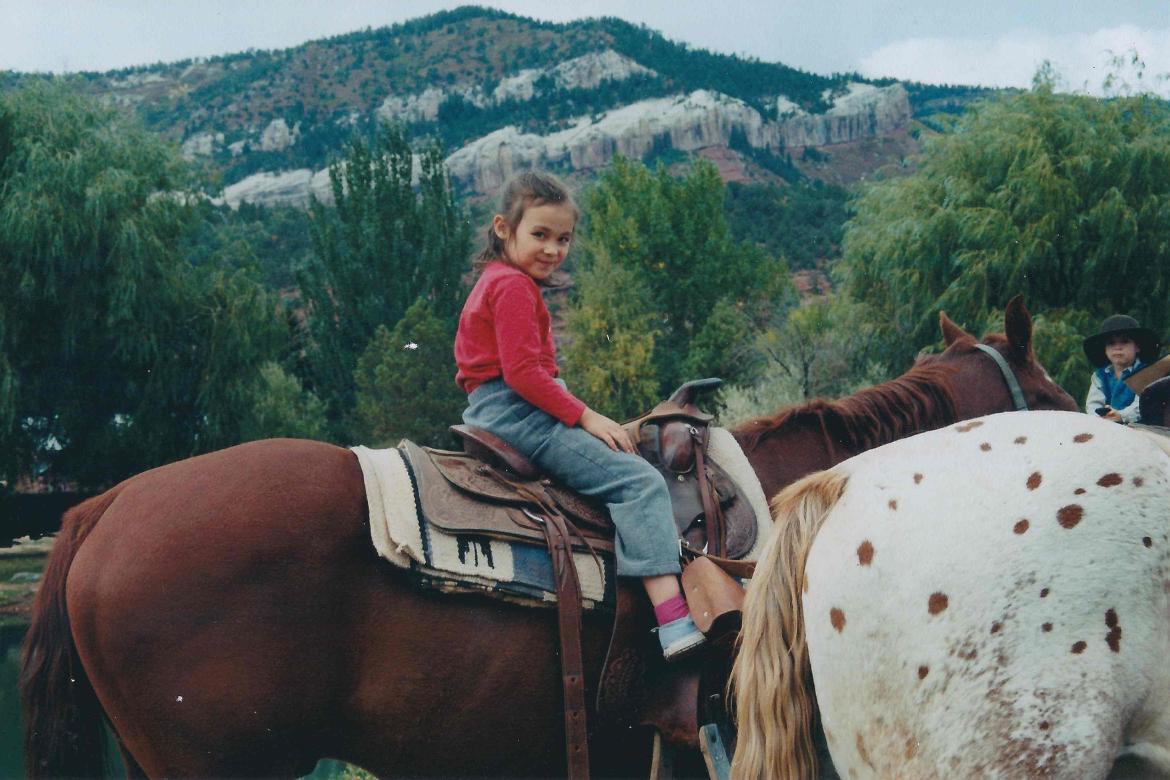
With a small town at heart, researcher presses for stroke treatments while grants are suspended
Elle Rathbun is firmly planted in Westwood. At 29, she is a sixth-year neuroscience Ph.D. candidate in UCLA’s Department of Neurology, studying potential treatments that could help repair the brain after stroke.
Part of her, though, will always be in Durango, Colorado, and the nearby town of Silverton where she grew up.
Her father was a theater history assistant professor at Fort Lewis College. Elle took part in theatrical productions, traveling with her family to nearby reservations and performing Native American folk tales alongside Native artisans.
Durango and Silverton are mountain towns, and Elle has brought some of that high-altitude spirit with her to UCLA, camping and hiking in the mountains to the north and east of Los Angeles.
Rathbun was raised with an earnest appreciation for science and for community. She has called it her “Durango identity,” and credits it for seeking unique insights.

“Growing up, every effort was a community effort,” Rathbun said, “Every win was a community win. We celebrated everyone’s accomplishments – including my artwork – at school. When I received my scholarship to the University of Chicago, and when my high school aerospace team won an international competition, these efforts were known throughout the community because it all started there.”
Elle sailed through the University of Chicago, earning her bachelor’s degree in neuroscience with honors. Then, she headed west, seeking her Ph.D. and focusing on research that could lead to stroke treatments.
“One way of looking at this is that we’re researching a way to save space for stroke recovery,” Rathbun said. “After a stroke, the affected cells in the brain die, and the area forms a scar that shrinks over time. Our research, which is part of longstanding collaboration with investigators at Duke University, displaces that dead tissue with a biomaterial also known as a hydrogel. It reserves that space and acts as a scaffold to rebuild that part of the brain, supporting neural repair that could lead to at least partial stroke recovery.”
People who live in rural areas like Durango can be more at risk for long-term damage after a stroke, partly because of the distance to hospitals.
“This research matters on multiple levels,” Rathbun said. “I’m working on a directly translatable project. When there’s a slowdown, that means a delay in finding answers to problems that can really help people – especially in rural communities which tend to be more affected by stroke for multiple reasons. That’s something I wanted my research to carry through.”
Her drive and dedication to rural communities led Rathbun to take part in the McClintock Letters initiative, a nationwide campaign of student researchers writing editorials for their hometown papers. Her editorial was published in the Durango Herald earlier this summer, before hard-hitting grant suspensions stopped her research.
“My journey has been completely enabled by federal programs such as the TRIO Talent Search, Pell grants and an F-31 Diversity Fellowship from the National Institutes of Health, and those all are directly correlated to my socioeconomic background and my rural upbringing,” Rathbun said. “All those are at risk.”
Searching for ways to bridge the funding gap, Rathbun presses on. She’s determined to continue her research, but feels frustrated by the disruption of potentially life-saving research.
“We are very much disheartened by the wastefulness,” Rathbun said. “To have this important work suspended has been incredibly disheartening because now we’re responding to that instead of doing the science that we want to do.”